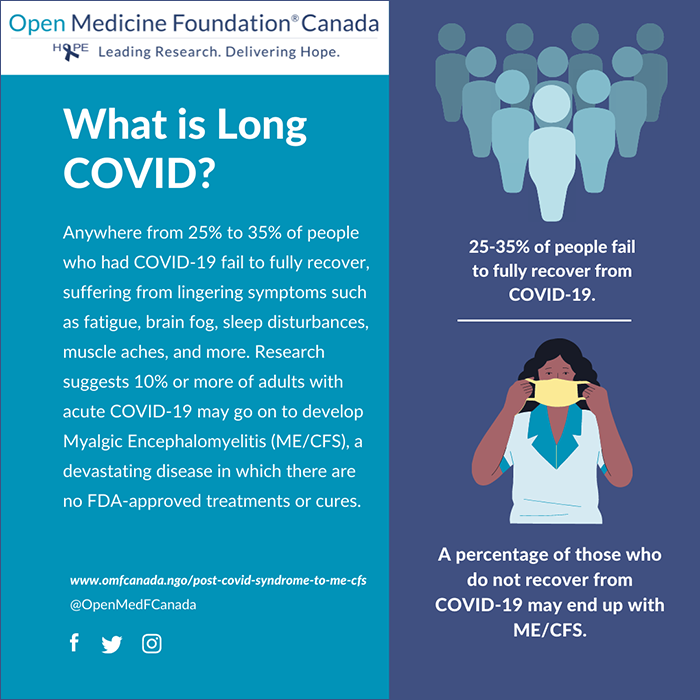I am strong. You’re not going to hear many people say that. They’re bragging; they’re over-confident, and no one wants to be perceived as either. So you most likely won’t hear people with M.E. say something like that.
Ironically, the COVID-19 pandemic triggered the thought. There is a group of people that have contracted the virus and came out on the other side of it. Some of them have coined the term “long-haulers” since many of them have nagging and perhaps long-term changes to their health. They experience symptoms such as “brain fog”, headaches, constant aches & pains, heart palpitations and bone-crushing fatigue on a daily basis.
They experience symptoms such as “brain fog”, headaches, constant aches & pains, heart palpitations and bone-crushing fatigue on a daily basis.
This is very familiar to myself and millions of M.E. (Myalgic Encephalomyelitis) sufferers from around the world. It sounds like us.
Some of us have been suffering a short time, but some of us have been suffering for decades, in a strange kind of medical limbo. There are no known treatments, no MSP (Medical Services Plan) codes when we seek treatment, and many health care professionals have no understanding of it, thereby making it next to impossible to get any help. Little or no government support is available, even though research (and many years of it) has shown that M.E. patients often have more health issues at any given moment than MS, lupus and diabetic patients contend with (US CDC).
There is often little or no understanding of the disease by family, friends, or society as a whole. So, for the most part, support of any kind has to come from within ourselves. It is lonely. It is challenging. We go to sleep each night, to wake up the next day, to push what feels like a boulder uphill again.
There is often little or no understanding of the disease by family, friends, or society as a whole.
Research has shown that one of the possible initial triggers of M.E. could be a viral illness. The same applies to COVID-19 “long-haulers”. Now that some COVID-19 survivors are reporting the same type of symptomatology that M.E. patients have been dealing with for years, there is hope within the M.E. research community that there will be more funds available to help solve this mysterious condition. This could lead to treatments, or better yet, a cure.
I feel for the COVID-19 “long-haulers”. To contract a virus that leaves you changed. The fear that your new “normal” may not be your old “normal”. That simple things like being able to go for a walk, finish a project, or a myriad of other things, may no longer be doable. That you may have to adjust your expectations in every area of life. I have lived this way for 30 years now. Many choices one has in life: work, career, family, relationships, are deeply affected by this serious illness.
I’ve had to attune my mind and heart to have less in life, and at the same time, taking satisfaction from the smallest of achievements in a day; I got up; I ate breakfast; I walked a short distance. That might be all I can accomplish for that day. I’ve had to get used to a myriad of symptoms, that taken altogether, end up being a serious, life-altering condition.
I say that I am strong because I have found constructive ways to cope after years of struggle. Regardless of the challenges that M.E. throws my way daily, I find joy in many things. That’s all anyone can do in a difficult situation.
I say that I am strong because I have found constructive ways to cope after years of struggle
To the “long-haulers”: I hope that the lingering physical symptoms you are currently experiencing resolve entirely. Know that many other M.E. sufferers and I support you in your struggles. We have had many years of experience to draw upon. I hope that you will support us—a group of “long-haulers” as well. If we work together, perhaps we can help bring about the help needed to solve the riddles of our very similar conditions.
Related Resources
- Managing Specific Symptoms of ME/CFS. Patient Discharge Sheet (CDC)
- Myalgic Encephalomyelitis/Chronic Fatigue Syndrome (CDC)
- ME/CFS: Physicians Discuss Using the 2015 IOM Diagnostic Criteria – VIDEO (US CDC)
- Will COVID-19 Lead to Myalgic Encephalomyelitis/Chronic Fatigue Syndrome. Article by Anthony L. Komaroff and Lucinda Bateman for the U.S. ME/CFS Clinician Coalition.

COMMENTS (0)
Add public comment…


POST COMMENT
We welcome your contribution! If you are a member, log in here. If not, you can still submit a comment but we just need some information.